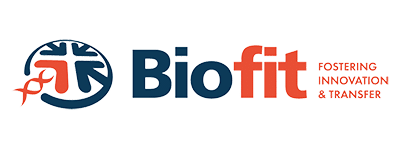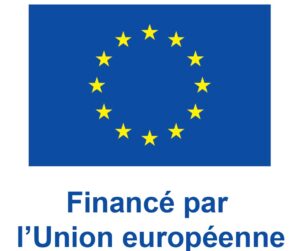Dear BioFITers,
This month, we have the pleasure to interview Sarah Holland, recently appointed BioFIT Steering Committee member. Sarah is Head of Europe, External Science and Partnering at Sanofi gave us an insight into her varied career.
We also discussed entrepreneurship significance in today’s Life Sciences environment, and Sarah shared her vision:
- Can you tell us about your career? You have a business education background yet you have always worked in pharma. Why have you chosen this specific field?
While doing a chemistry doctorate at Oxford, I realized I needed an environment with greater teamwork and more human interaction. I still loved science, so chose to go into sales and marketing in a science-driven UK diagnostics company, learning a huge amount about both medical practice and business. I was then headhunted by an oncology focused biotech in Amsterdam – an irresistible location! After a couple of years, I moved to “big pharma”, establishing a cross-functional Oncology Business Unit at Sandoz UK. While there, I won a newspaper competition to study for an MBA at Manchester Business School, so made the move north to Zeneca. There I gained skills in health economics and pricing – very useful as payers have become ever more important. After acquiring a husband and two children to go with the MBA and launching a drug for breast cancer globally, I was headhunted again, this time by Roche. I spent 11 years in Basel, mostly in Business Development, where I led the deal with Plexxikon that resulted in the launch of ‘Zelboraf’ for melanoma and built and ran the M&A assessment team. In my last job, I led the cross-functional team in charge of alectinib, an ALK inhibitor from Chugai that we took to FDA and EMA submission and which has been launched in the US as ‘Alecensa’. Most recently, I was recruited by Sanofi to head up External Science and Partnering for Europe. Looking back, my greatest motivators have been the desire to make a difference for patients and to keep learning.
- Can you describe your most rewarding professional experience up to now?
That is really difficult as there have been so many. My first experience of leading a team at Sandoz was amazing. I love challenges – I was told that the breast cancer drug I marketed at AstraZeneca would never be launched outside the US and it became the company’s first centralized European submission! More recently, alectinib faced similar challenges and it was very satisfying to secure Phase 3 investment and recruit the trial a year ahead of schedule, as well as accelerating the ex-US launch. The most rewarding achievement was probably ‘Zelboraf’, which transformed melanoma treatment and showed the impact of targeting cancer mutations.
- Your mission at Sanofi is to develop a wide network of external collaborators. From your expert point of view, how do you think interactions in the biotech sector could be improved in order to foster more innovation?
It is critical to focus all our efforts, across academia, biotech, venture capital and pharma on truly game-changing innovation. All the participants in the ecosystem bring essential skills and insights and by working together effectively we can tackle the really challenging problems and make true progress. I believe the successful recipe is to have meaningful goals and to work together in an open and collaborative way that brings all our different strengths to bear. Collaborating as early as possible increases the chance of going in the right direction quickly. It is also important to minimize complexity and keep things simple.
- Congratulations on your appointment to the BioFIT Steering Committee. What are you looking forward to in this role? What are your expectations for BioFIT?
Thank you! My first impression of BioFIT last December was that the conference programme was really excellent. I learned a lot about open innovation best practices, for example, which alone justified my attendance. However, I felt the topic of entrepreneurship was the missing part of the puzzle and would have liked to have seen more young scientists at the conference. I am keen to influence the conference to make it more attractive and worthwhile for the next generation of bioentrepreneurs, so that they can start to build their networks, find mentors and gain truly helpful insights.
- How do you think we could promote a culture of European entrepreneurial scientists?
We need to get young scientists excited about being entrepreneurs. If you ask a lecture theatre full of chemists or biologists how many want to be professors, the majority will put up their hands, but very few will say that they want to start their own company. You would get quite the opposite with a room full of IT students. We need to expose our young scientists to the life stories of bioentrepreneurs and broaden their horizons. We also need to make the first steps less scary, by organizing boot camps to explain the basics and by providing friendly support from technology transfer, incubators and early investors. Making sure they have good mentors and networks is critical.
- Which qualities do you think an entrepreneur needs to have in order to succeed in the Life Sciences field?
An entrepreneur needs to build a really strong team, even if they are advisors rather than employees at the beginning. There are many examples where a strong team succeeded with a weaker asset, while dysfunctional teams wasted great opportunities. Access to the best expertise and advice is also critical. Often investors can help here, but it is also important to be able to network effectively and widely. It is critical to be resilient, as science is unpredictable and flexible in the face of setbacks or surprises. Keep an open mind as game-changing innovation can come from unexpected results. Focus on excellence and be prepared to do the “killer” experiments – it is far better to stop unproductive efforts early. Ensure that innovation will really make a difference for patients and will be affordable for payers.
- In your opinion, what three words best describe BioFIT?
Friendly, accessible, helpful.
Thank you, Sarah, for these inspiring thoughts ! Scientists, you are warned, get ready to become entrepreneurs!
Don’t forget to stop by the conference programme page and check what to expect at BioFIT on 30th November and 1st December













